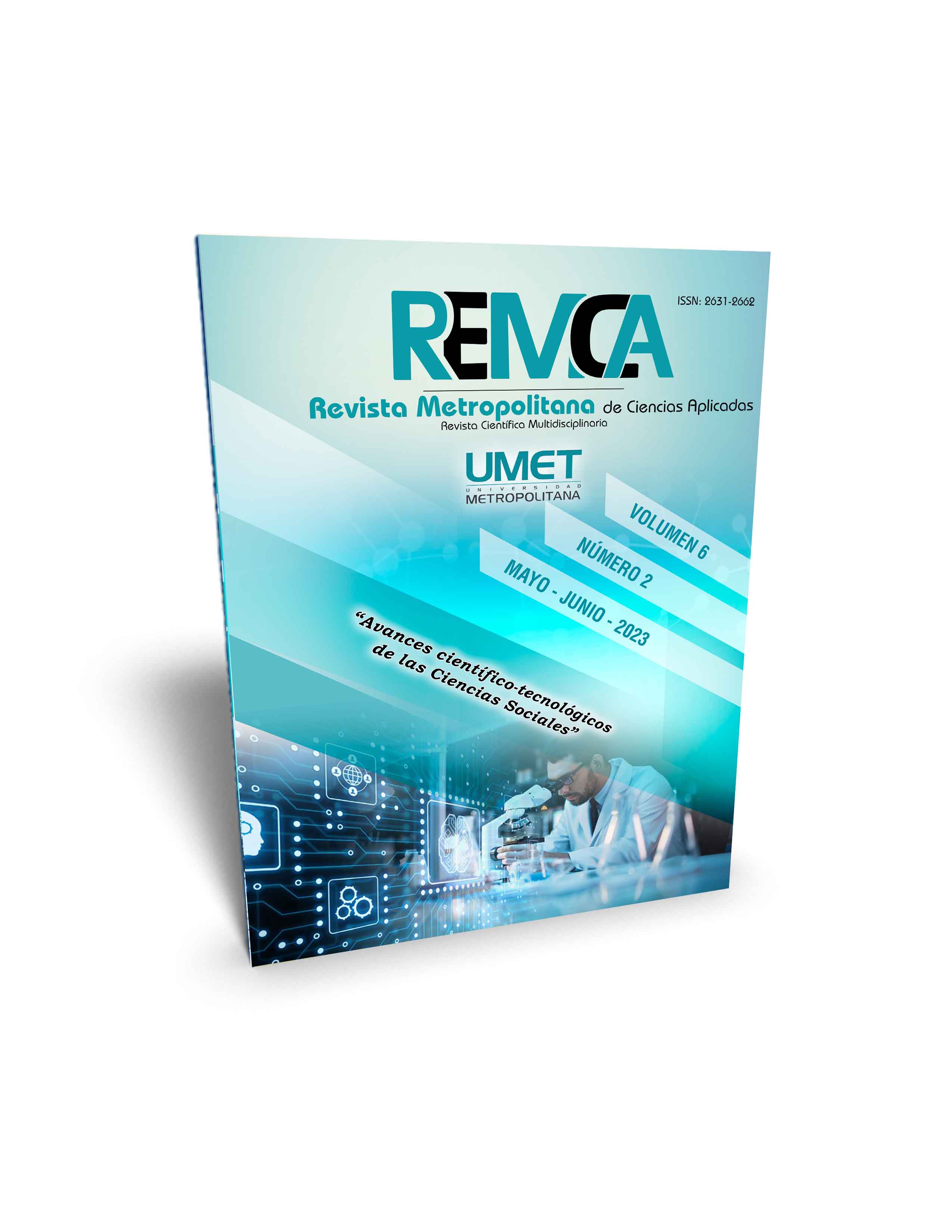Analysis of the Ius Variandi in Ecuador: the challenges of the Labor Code
DOI:
https://doi.org/10.62452/h8qqew24Keywords:
Ius variandi, flexibility, essential conditions of the contract, comparative law, Ecuadorian private Labor LawAbstract
The present study aims to investigate the content and limits of the ius variandi, including its relationship with the phenomenon of flexibility, from which it can establish a diagnosis regarding the state of its current recognition within the Ecuadorian private Labor Law. On the other hand, it deals with analyzing the development of the ius variandi in other systems of the Ibero-American context of Spain and Peru, and evaluating its impact on the essential conditions of the employment contract. Finally, an attempt is made to provide some conclusions with a view to introducing an organic regulation of the ius variandi in the Ecuadorian private Labor Law, resulting from the contrast between the findings of comparative law, on one side, and the deficiencies detected in the Ecuadorian regulations, on the other. During the research, categorized as descriptive, and conducted with a qualitative approach, through the use of analytical-synthetic, comparative and exegetical methods, it has been possible the analysis of the normative, doctrinal and jurisprudential content, about the ius variandi, produced in the context of the countries studied.
Downloads
References
Albornoz, V., Ricaurte, M., & Oleas, S. (2011). La informalidad en el Ecuador 2000-2009. CORDES.
Álvarez, O. (2017). Los retos actuales del Derecho del Trabajo y de la Seguridad Social. Una perspectiva latinoamericana. Trabajo y Derecho, 33, 15-22.
Ecuador. Asamblea Nacional. (2020). Ley Orgánica de Apoyo Humanitario para combatir la crisis sanitaria derivada del Covid-19. Registro Oficial Suplemento 229. https://www.emov.gob.ec/sites/default/files/transparencia_2020/a2_41.pdf
Ecuador. Congreso Nacional. (2005). Código del Trabajo. Registro Oficial Suplemento 167. https://derechoecuador.com/uploads/content/2020/11/file_1604679569_1604679577.pdf
Ecuador. Ministerio del Trabajo. (2018). Acuerdo Ministerial Nro. MDT-2018-219. Por el que se emiten las normas que regulan la aplicación y procedimiento de autorización de horarios especiales. https://www.trabajo.gob.ec/wp-content/uploads/2018/01/MDT-2018-0219-EMITIR-LAS-NORMAS-QUE-REGULAN-LA-APLICACION-Y-PROCEDIMIENTO-DE-AUTORIZACION-DE-HORARIOS-ESPECIALES.pdf?x42051
De la Flor, M. (2017). El ius variandi o poder de dirección tras la reforma laboral del 2012. (Trabajo de fin de Grado). Universitat Pompeu Fabra.
De Leede, J., Drupsteen, L., Schrijver, E., Goudswaard, A., Dağ, N., Van der Weide, J., & Verbiest, S. (2020). Labour flexibility practices in Dutch SMEs. Personnel Review, 49(3), 791–807.
Gobierno de España (2015). Real Decreto Legislativo 2/2015. Por el que se aprueba el texto refundido de la Ley del Estatuto de los Trabajadores., Boletín Oficial del Estado de 23 de octubre de 2015. https://www.boe.es/buscar/act.php?id=BOE-A-2015-11430
Guzmán-Barrón, C. (2016). Presente y futuro del ejercicio del Ius Variandi frente a las vicisitudes de la relación laboral en el Perú. (Ponencia). VII Congreso Nacional de La Sociedad Peruana de Derecho Del Trabajo y de La Seguridad Social. Lima, Perú.
Miranzo, J. (2001). EL artículo 41 del E. T. y su incidencia en la esfera procesal. Ediciones de la Universidad de Castilla-La Mancha.
Navarro, M., Delgado, H., & Nieves, G. (2021). Trabajo Decente y Crecimiento Económico en Ecuador: Un Estudio Jurídico y Social. Revista Venezolana de Gerencia, 26(95), 578–594.
Perelló, N. (2006). Reformas laborales: Empleo vs. flexibilización. Nuevos paradigmas del Derecho del Trabajo. Revista Gaceta Laboral, 12–3(1315–8597), 386–403.
Presidencia de la República del Perú. (1997). Decreto Supremo No 003-97-TR. Texto Único Ordenado del Decreto Legislativo No 728, Ley de Productividad y Competitividad Laboral. Diario Oficial 27 de marzo de 1997. https://app.vlex.com/#search/jurisdiction:PE;*,EA,EC+content_type:9/Ley+de+Productividad+y+Competitividad+Laboral.+Diario+Oficial+27+de+marzo+de+1997/WW/vid/575977894
Presidencia de la República del Perú. (2002). Decreto Supremo No 007-2002-TR. Por el que se expide el Texto Único Ordenado del Decreto Legislativo Nº 854, Ley de Jornada de Trabajo, Horario y Trabajo en Sobretiempo, modificado por Ley Nº 27671. http://www.mintra.gob.pe/archivos/file/normasLegales/DS_007_2002_TR.pdf
Tribunal Supremo de España. (2013). Sentencia 2961/2013. https://app.vlex.com/#vid/trabajo-modificacion-relacion-laboral-496769114
Downloads
Published
Issue
Section
License
Copyright (c) 2023 Johann Danilo Arrobo-García, Francisco Gabriel Contreras-Pérez (Autor/a)

This work is licensed under a Creative Commons Attribution-NonCommercial-ShareAlike 4.0 International License.
Authors who publish in Revista Metropolitana de Ciencias Aplicadas (REMCA), agree to the following terms:
1. Copyright
Authors retain unrestricted copyright to their work. Authors grant the journal the right of first publication. To this end, they assign the journal non-exclusive exploitation rights (reproduction, distribution, public communication, and transformation). Authors may enter into additional agreements for the non-exclusive distribution of the version of the work published in the journal, provided that acknowledgment of its initial publication in this journal is given.
© The authors.
2. License
The articles are published in the journal under the Creative Commons Attribution-NonCommercial-ShareAlike 4.0 International License (CC BY-NC-SA 4.0). The terms can be found at: https://creativecommons.org/licenses/by-nc-sa/4.0/deed.en
This license allows:
- Sharing: Copying and redistributing the material in any medium or format.
- Adapting: Remixing, transforming, and building upon the material.
Under the following terms:
- Attribution: You must give appropriate credit, provide a link to the license, and indicate if any changes were made. You may do this in any reasonable manner, but not in any way that suggests the licensor endorses or sponsors your use.
- NonCommercial: You may not use the material for commercial purposes.
- ShareAlike: If you remix, transform, or build upon the material, you must distribute your creation under the same license as the original work.
There are no additional restrictions. You may not apply legal terms or technological measures that legally restrict others from doing anything the license permits.




